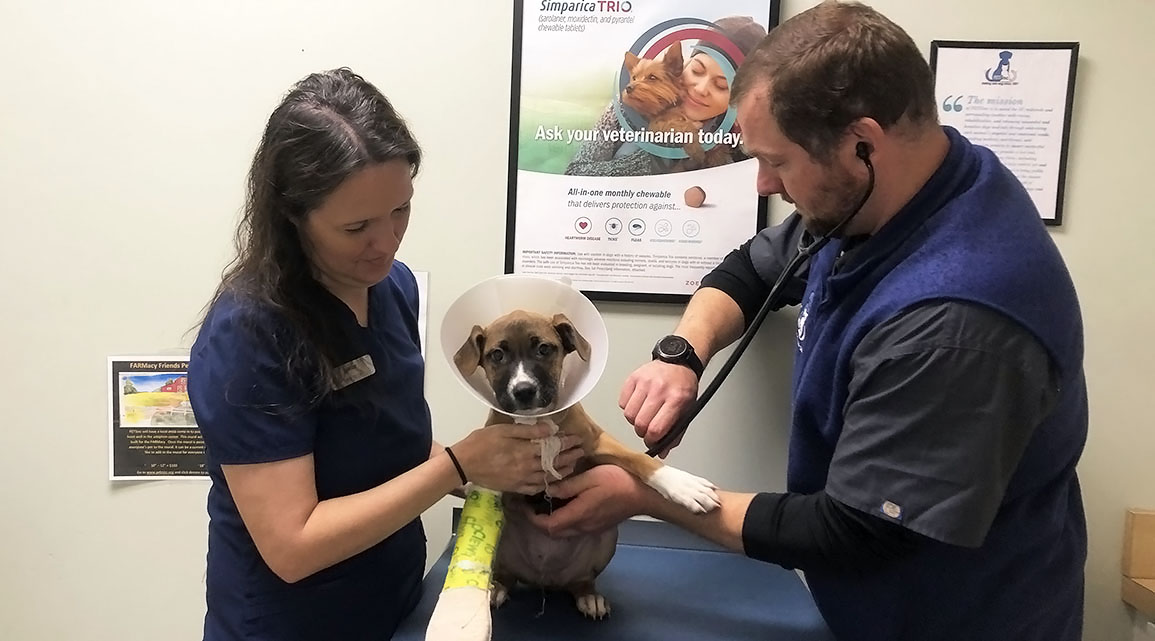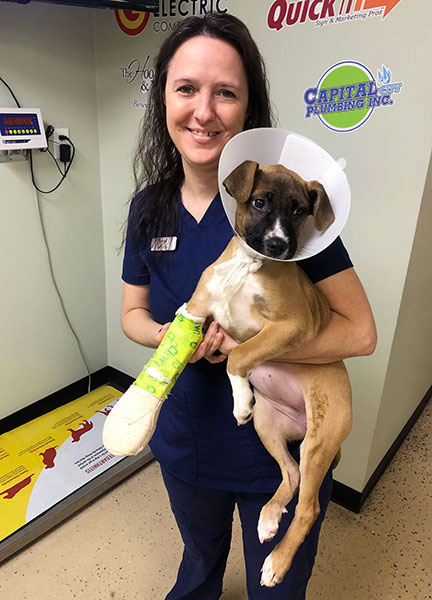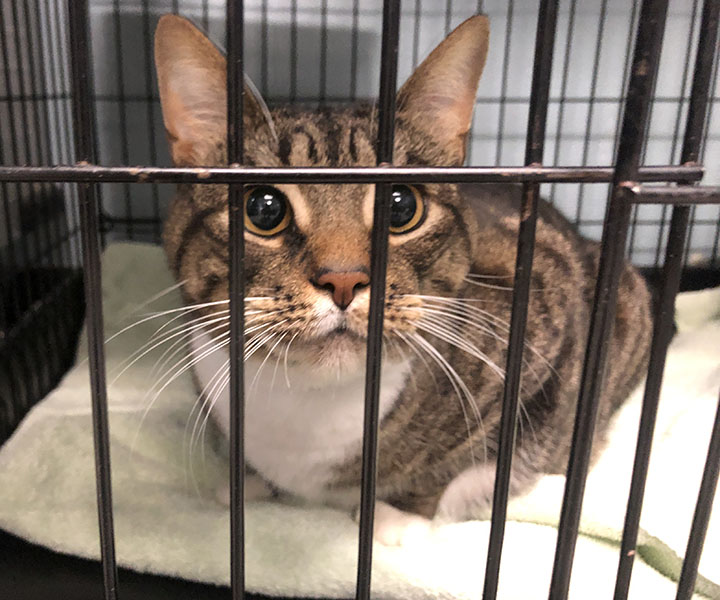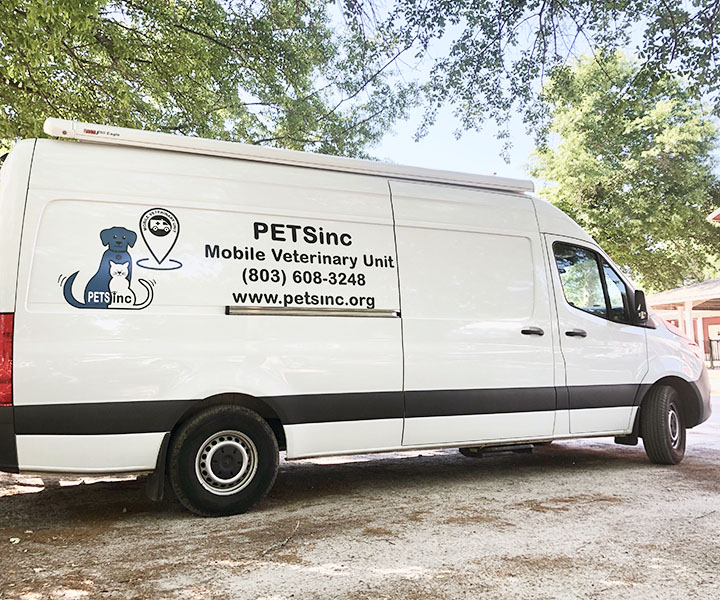Carrie Christiansen, a vet tech at PETSinc, holds a dog named Raspberry while veterinarian Andy Hardisky listens to his heart. (Photos by Lauren Leibman)
Clemson University is about to start the state’s first veterinarian school.
The South Carolina Senate on Wednesday unanimously approved a state budget that includes $75 million needed to start the school.
The new college would provide fresh graduates to South Carolina animal hospitals suffering from a veterinarian shortage.
Vets offices in the counties outside of Richland are especially busy and burned out, said Andy Hardisky, a vet who works in the clinic at the PETSinc. shelter in West Columbia.
“They’re all overworked – I’ll be honest,” he said.
Some are hopeful the school also could bring vets to shelters inundated with animals.
“There are so many animals that need homes and so many shelters and rescues … but not a lot of vets to make sure that they’re healthy,” said Deborah Murphy, the shelter vet at PETSinc.
The shortage of shelter vets stems in part from of a lack of awareness that the job exists, Murphy and Hardisky said.
Hardisky also said less than 10% of his graduating class at North Carolina State University was interested in working at a shelter.
The pay for shelter medicine is also typically not as high as other veterinarian professions, said Dawn Wilkinson of the South Carolina Humane Society.
Shelter vets oversee the health of shelter animals and cooperate with animal control in cases of abuse and neglect.
They are responsible for performing spay and neuter surgeries, which is an important part of controlling the animal overpopulation issue.
Murphy said problems with over-breeding worsen and more animals are euthanized without the care that shelter vets provide.
Hardisky frequently works out of PETSinc’s mobile van. He travels to shelters near West Columbia to provide surgery and vaccine services.
He said he doesn’t think many prospective vet students realize how rewarding shelter medicine can be.
“These animals don’t have a voice,” Hardisky said. “We’re the ones that are helping them. It makes me feel good at the end of the day.”
An increased awareness of shelter medicine could bring more professionals to the field, Murphy said.
“It’s a need in the community,” she said. “And if there were more schools who would expose students to shelter med, I think more people would be interested in going into it.”
A required shelter medicine rotation for Clemson vet students or the option to pursue a shelter medicine concentration could help, Murphy said.
Wilkinson, executive director of the humane society, said she has been encouraging Clemson to include such a program.
Clemson hopes to graduate students from the new vet school by 2030, The State Newspaper reported.
The school’s curriculum is still in development.
Christiansen poses with Raspberry. The dog came to the clinic from a nearby rescue operation that doesn’t have a vet of its own. Many nearby counties have shelters but no vets, Hardisky said. X-rays revealed Raspberry had an ulna fracture that could be fixed with a splint.
Kimba is a cat waiting to be adopted at PETSinc. He is one of the animals under the care of shelter veterinarian Deborah Murphy.
PETSinc.’s mobile van travels to shelters in the Columbia area to provide vaccines and surgeries. Hardisky said working with shelter animals is more rewarding than working in a clinic or private practice.





